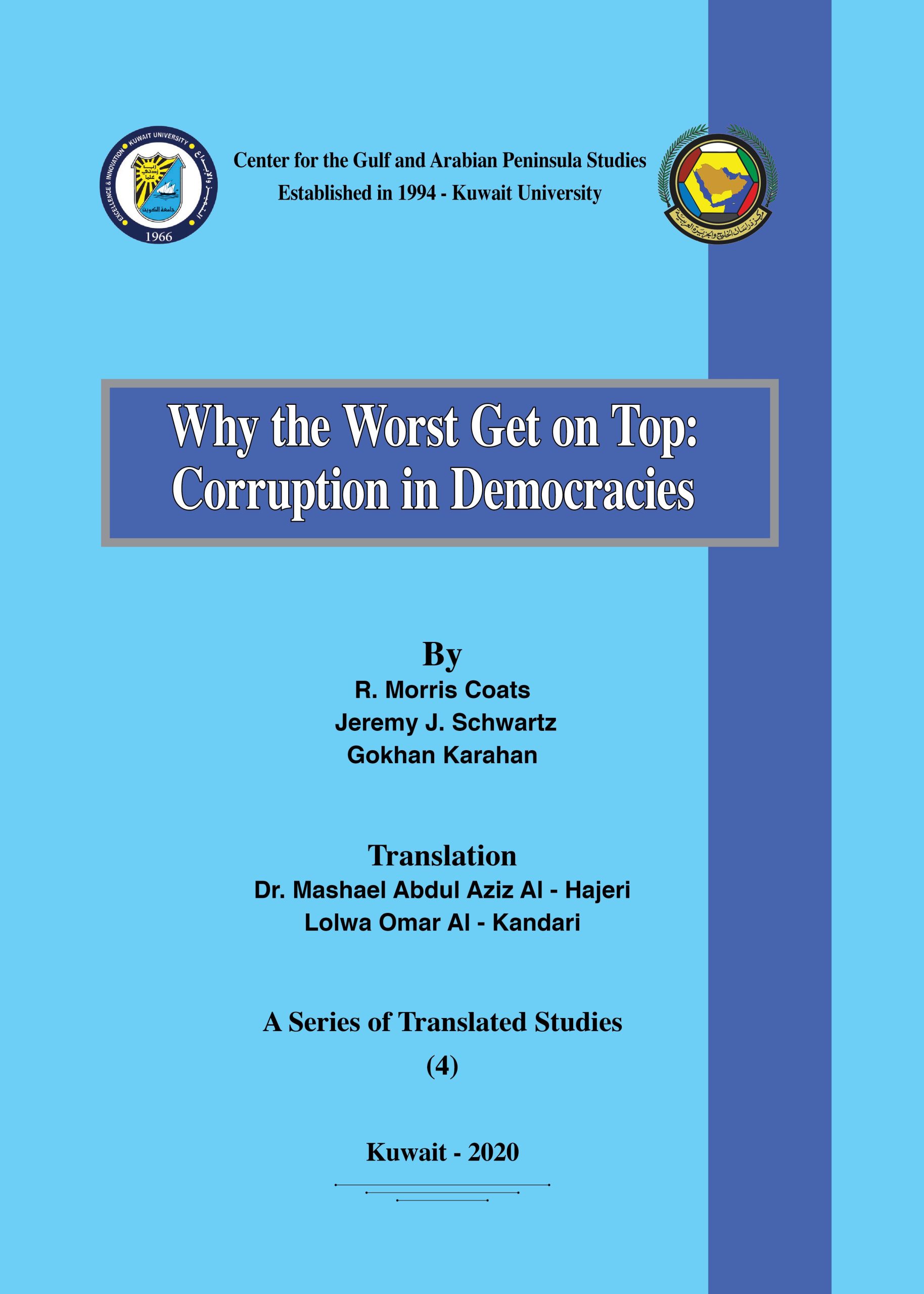Abstract:
In The Road to Serfdom ([1944] 1994), Friedrich Hayek argues that leaders who dominate totalitarian regimes are willing to “do what it takes” to rule, with rent-seeking competition for leadership positions resulting in the worst contestant winning. Democratic regimes, with less power at the center and fewer functions under state control, tend to offer smaller “prizes” to the political contest’s winner. But both democratic and totalitarian processes are rent-seeking games, though played by different rules. Corruptible politicians become lower-cost competitors even in democracies because they do not feel there are psychic costs to breaking rules. In addition, they accrue more from winning elections because they are willing to line their own pockets. Thus, they have stronger incentives to invest in campaigns for election or reelection to office and not only “bid” more for office (by investing in more electioneering effort) but also stand to benefit from changing the rules of the game that increase the winner’s prize by diminishing the democratic process. The main takeaway is that it is not only in dictatorships but also in democracies that there is a propensity for “the worst get on top.” This thesis is demonstrated by examining recent events in Turkey. Starting around 10:00 p.m. (local time) on July 15, 2016, some soldiers took positions on a suspension bridge over the Bosporus, a maritime channel dividing Europe from Asia, intending to overthrow Turkey’s elected president, Recep Tayyip Erdogan, ˘ and his ruling party, the (AKP, Justice and Development Party). After hours of fighting, which included the coup plotters’ bombing of the Turkish National Assembly building and the presidential palace, the “uprising” was defeated by Turkish armed forces and even ordinary citizens, who defiantly confronted the perpetrators in the streets of Istanbul. Was the swift repudiation of the coup an example of commitment to the democratic way of life or of support for President Erdogan or of ˘ both? Since that time, Erdogan has pursued policies and exercised authority in ways that ˘ are not consonant with the democratic way of life; rather, they are consistent with a de-democratization (Huq and Ginsberg 2017) of Turkish society. Erdogan has blamed the Pennsylvania-based Gulenist movement (or, as Erdogan calls it, (the Fethullahist Terrorist Organization). Within weeks of suppressing the planned overthrow, the Erdogan regime jailed hundreds and thousands of people who took part in or were suspected of taking part in the plot as well as those who were even remotely associated with the Gulenist movement. From the viewpoint of Turkey’s security forces, police, and judicial system, unsubstantiated allegations of being connected to the Gulenists were more than enough to jail anybody. More than a year after the event, expressing any disagreement with Erdogan’s policies is a cheap ticket to prison. Today, some commentators suggest that the attempted coup was perhaps a veiled attempt by the regime itself to suppress any opposition to Erdogan’s increasingly autocratic policies.
Hits : 938
